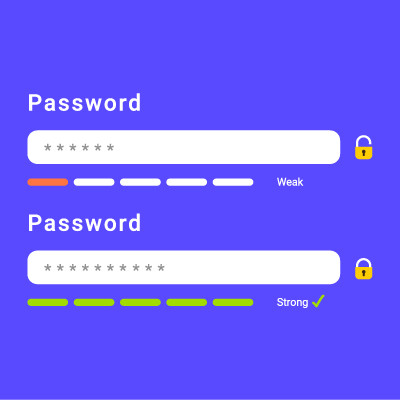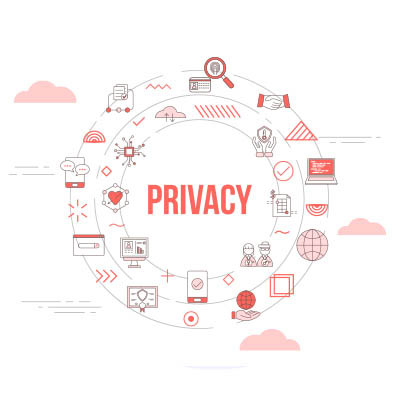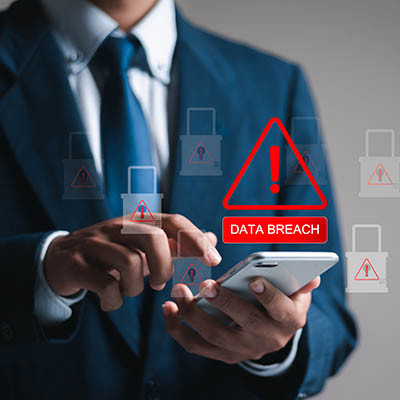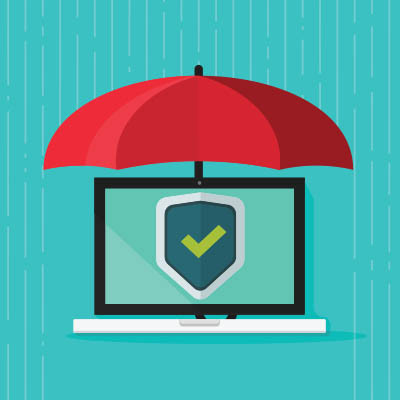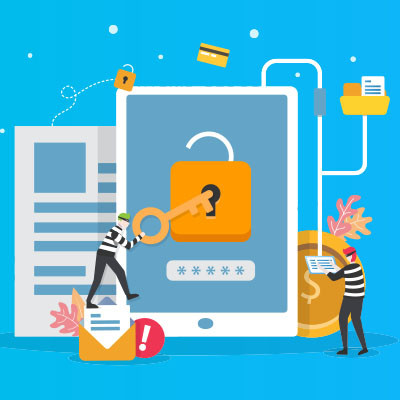Businesses deal with all types of problems, and some of them are really serious. Some situations aren’t even problems…yet. When risk is all around you, how can you know when enough is just enough? In today’s blog, we will provide you with some answers to how to flip potential problems into opportunities using technology.
Phantom Technology Solutions Blog
Every time you log into an account, you have to enter a password. And we know exactly what you’re thinking: why? Good password hygiene is important, especially in high-profile environments like your business. Passwords play a crucial role in securing your network, so you should know how to build better passwords—if not for your own sake, then for your business.
Sometimes, companies don’t take the privacy of their services as seriously as they should, as evidenced by Meta, the parent company of Facebook, WhatsApp, and Instagram. Despite their popularity, these services have had several security and privacy issues over the years. Today, we want to look at some of these services' most notable privacy and security breaches.
You can take numerous steps to secure your social media accounts and tighten your privacy settings. Yet, every time you log in, you’re still exposing yourself to a vast stream of information and content. Our civilization has never encountered anything like this before. These platforms are designed to curate content you want to see, encouraging you to stay longer and return frequently. This design, meant to be enticing and addictive, poses dangers, especially to certain individuals.
Email is a centralizing communication tool for most businesses, but what would you do if we asked if your email system was encrypted? Could you give us an honest answer? Encryption is a powerful security measure for networks and infrastructure, so it makes sense to use it for your email solution, too. Here’s what you need to know about encryption and email.
With social media becoming a major part of how society communicates, there’s no better time to discuss how to stay safe while you’re using these significant mediums. Whether you enjoy social media or are against it, there’s no denying that you need to take responsibility to use it. This includes prioritizing your own security.
If your organization has an internal IT department, chances are they're managing a complex infrastructure while being understaffed and overworked. This isn't a criticism; it's simply the reality for many SMBs (we understand this well). We can ease the burden on your IT team and streamline your technology management.
If you are a consistent reader of this blog, it will not surprise you that we think of phishing as one of the most significant threats that impact businesses today, regardless of their size or industry. Understanding this threat and implementing effective prevention measures is vital for safeguarding your organization. Let's go into how you can minimize the impact of phishing schemes and protect your business.
With artificial intelligence becoming a household conversation starter across the country, it’s no wonder the technology has become a key part of operations for countless entities. It’s used in business, education, civic life, and elsewhere… including the U.S. Department of Homeland Security. How is the US DHS using AI to promote the security of everyday Americans?
Travel has become a common occurrence for many employees and business professionals. Yet despite the travel, their responsibilities do not get put on halt. Whether it’s for a conference, a professional development workshop, or visiting a potential client or vendor, chances are you’ll bring technology with you. It’s up to you to ensure that it is kept safe from today’s rampant cyberthreats.
Apple rarely sends out alerts about threats, and that is because threats that target Apple devices are somewhat rare in the first place. However, on April 10, 2024, Apple saw fit to send one to certain users in 92 nations by email. These notifications were “designed to inform and assist users who may have been individually targeted by mercenary spyware attacks.” What does this mean, exactly?
In today’s world of perpetual security breaches and cyberattacks, it’s no surprise that the greatest response to such threats is to actively prevent them from harming your organization in the first place. One key tool in this effort is an endpoint detection and response (EDR) solution. With endpoint protection on your business’ side, you can leverage a robust and powerful security solution to handle a significant portion of your network security.
How clearly outlined are your IT-related policies and procedures in the workplace? It is difficult at best to manage these expectations alongside your employees, but it’s a necessary task all the same. Today, we want to help your organization walk the fine line between protecting your assets, data, and reputation, and granting your employees permissions to do what they must on your network infrastructure.
When you ask a managed service provider or other technology expert when you should be upgrading your technology, you’ll likely get a pretty nebulous answer like, “it depends.” That’s because there isn’t necessarily a hard or steadfast response to this question, and the answer will change depending on various factors that are inconsistent across businesses.
When it comes to your business’ data backup and disaster recovery, you want to have clear outcomes that you aim for, as well as metrics that help you gauge success. Today, we want to highlight some of the most important metrics associated with data backup and disaster recovery, as well as the importance of testing your systems. Trust us when we say that a solid data backup and disaster recovery strategy is crucial to the success of any business—including yours.
Cyberattacks often attack healthcare organizations, including businesses and vendors they associate with, primarily due to how lucrative they can be. One particularly nasty hack is just one of the many organizations which have been featured in headlines due to their inability to protect against security threats. Let’s explore this new situation with UnitedHealth Group and see if there is anything you can learn from it.
Humans have all kinds of stakes in digital security thanks to today’s online world demanding that we be more online than ever. Whether it’s personal information or financial details, you can bet everyone is at risk to some degree. Today, we want to examine why individuals—even technology professionals—are not immune to data theft.
If you’re in the know about cybersecurity and, specifically, mobile malware, you might have heard the name XLoader in the past. The malware has gone through considerable versions and variations, allowing it to steal information from users in more than seven countries, but the most recent is incredibly scary.


